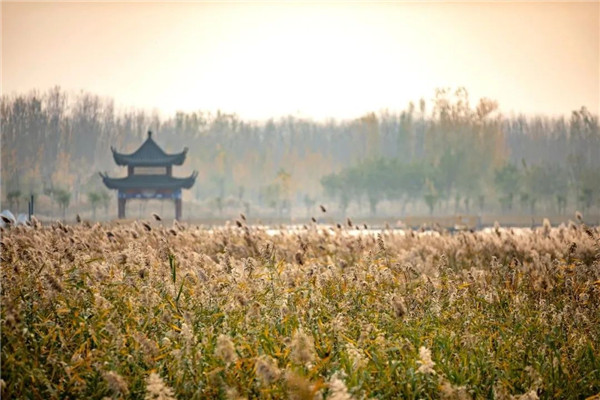Xi Jinping steers decade of reform toward Chinese modernization
Championing reform for modernization
Comprehensively deepening reform has been viewed by Xi as the fundamental driving force for Chinese modernization, which is key to realizing national rejuvenation.
His calls resonated well across the country.
Hefei, capital of Anhui Province and an inland city once much less conspicuous, is being transformed into a "city of the future." It is now home to a world-class new display industry, a thriving new energy vehicle sector, and some of the world's most cutting-edge technologies in artificial intelligence, quantum computing, deep space exploration and nuclear fusion.
The burgeoning development has been catalyzed by a raft of reform measures that empower cash-strapped strategic emerging industries with state-owned capital, beef up policy support for national basic research projects, and open public resources to provide the much-needed application scenarios for new technologies.
Hefei is the epitome of how the deepening reform championed by Xi has propelled China's pursuit of modernization, which entails high-quality development and the greater role of innovation in driving growth.
The city has set up special municipal-level committees for advancing sci-tech innovation and fostering strategic emerging industries, the earliest among its peers.
"We have to mobilize resources citywide to support these sectors as they typically need a long period of development before generating returns, with great uncertainty," said Yuan Fei, vice mayor of Hefei. "It's like we push for physical reactions first until chemical changes occur when they have appeal to the market."
Whatever local officials have been doing, it appears to be "the right mix of industrial policy and private-sector mojo," The Economist quoted Robin Xing, an economist at Morgan Stanley, as saying in a report on the city's success.
Noting that the key to Chinese modernization lies in the modernization of science and technology, Xi has urged deepening structural scientific and technological reform and establishing a foundational system for all-around innovation.
China has completed 143 reform tasks in this regard, helping boost its ranking on the Global Innovation Index from 35th in 2013 to 12th this year. The tech-intensive green trio — solar batteries, lithium-ion batteries and electric vehicles — have replaced apparel, home appliances and furniture to become the "three major drivers" of the country's foreign trade.
Reform is also taking hold in China's vast rural areas. Xi has pushed for significant reforms on the rights to contracted rural land and the rural collective property rights system, noting that "reform must be well leveraged as a powerful instrument for advancing rural revitalization across the board."
In Houbaligou Village of east China's Shandong Province, the reform of collective property rights has enabled villagers to hold shares in a cooperative engaged in businesses like real estate, education and commerce.
The village's collective assets ballooned to over 8 billion yuan (about $1.1 billion) at present from 3.5 billion yuan before the reform, and the incomes of the villages have continued to grow.
Nationwide, rural residents' per capita disposable income surpassed 20,000 yuan for the first time in 2022. The income gap between urban and rural residents has gradually narrowed over the past decade.
To achieve a modernization that features harmony between humanity and nature, Xi has systematically planned institutional reform for eco-environmental development.
Dozens of reform initiatives have been implemented. The toughest-ever environmental protection law was enacted, systems of river, lake and forest chiefs were instituted nationwide, and red lines were drawn for ecological conservation.
These measures have led to sweeping changes. From 2012 to 2021, China's annual energy consumption growth rate of 3 percent supported an average economic growth rate of 6.6 percent. China has seen the fastest improvement in air quality globally and it leads in forest resource growth and afforestation.
The tone-setting Central Economic Work Conference, which was held earlier this month, called for planning major measures to further carry out reform in all areas next year. It called for deepening and upgrading the reform of state-owned enterprises, promoting the growth of private enterprises, speeding up the development of a unified national market and planning a new round of fiscal and tax system reform.
China is expected to strive for breakthroughs in some critical links and key sectors of reform to build a high-standard socialist market economy and lay a solid foundation for sustained high-quality development and advancement of Chinese modernization, according to observers.



 Embark on cultural trip in Shandong
Embark on cultural trip in Shandong Global civilizations shine at Nishan in Shandong
Global civilizations shine at Nishan in Shandong Explore Taishan Mountain's autumn splendor
Explore Taishan Mountain's autumn splendor

